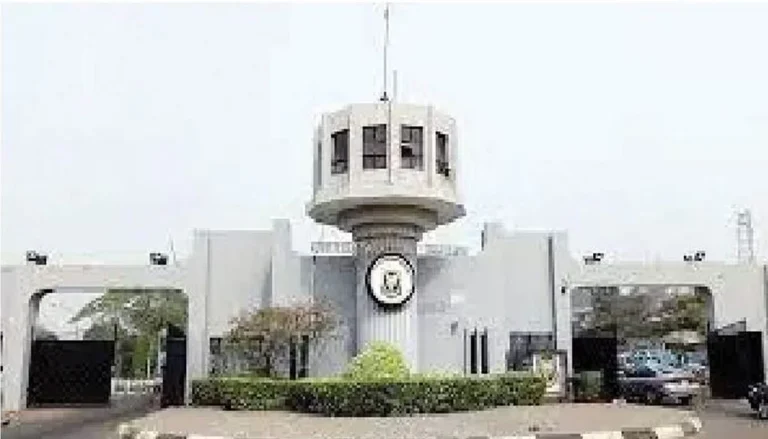
Nigeria’s banking sector has been hit by a wave of devastating financial heists in recent years, with millions of naira stolen.
Although the banking system has been put at risk, ordinary Nigerians have been left reeling from a crippling lack of justice, as reported by Saturday Vanguard.
Citizens are growing increasingly frustrated over the authorities’ repeated failure to investigate, arrest, and prosecute the perpetrators of this crime as the nation struggles to deal with the far-reaching consequences of these incidents.
As cybercriminals continue to exploit holes in the country’s antiquated security systems, they target unsuspecting individuals, banks, and even government agencies in Nigeria, where instances of sophisticated financial fraud have grown alarmingly common, undermining public trust in the banking sector.
Security breaches have repercussions beyond monetary losses. Many people worry about becoming victims of cybercrime, which has caused them to avoid making financial transactions or even using banking apps online. This over-precaution has caused disruption in their regular routines and added stress to their lives.
For instance, a recent report on fraud and forgeries in Nigerian banks for Q2’23 by the Financial Institutions Training Centre, FITC, found that Deposit money banks in Nigeria saw a significant increase in both the number of fraud cases and the total amount of money lost during that period.
The insider participation rate skyrocketed, according to the most recent report. From the previous quarter, Q1’23, the total amount at stake in the fraud cases increased to N9.75 billion, an increase of 276.98%.
The incident caused losses of N5.79 billion during the period, an increase of 1,125 percent from the first quarter (Q1’23) when N472 million was lost.
According to the report, there were 11,679 cases reported during the second quarter of 2023, representing a 6.96% decrease from the 12,553 cases reported during the first quarter. The amount at stake in fraud cases, however, has been shown to have increased significantly, according to the data. There was a 276.98% increase, from N2.59 billion to N9.75 billion, between the first and second quarters.
As a corollary, “the amount lost also saw a substantial increase,” with a jump from N472 million in Q1 2023 to N5.79 billion in Q2 2023 (an increase of 1125.03 percent). This rise could be explained by the fact that banks were responsible for the losses and had to reimburse their clients.
It went on to say that the number of fraud cases involving people from outside the company had dropped 6.40 percent, from 12,351 in Q1 2023 to 11,561 in Q2 2023. However, employee fraud rose by 22.22 percent from Q1 2023 to Q2 2023, from 72 cases to 88 cases. However, there was a 26.67 percent drop in fraudulent activity-related terminations from 15 in Q1 2023 to 11 in Q2 2023.
These robberies have far-reaching effects on Nigeria’s economy and the lives of ordinary people who rely on the safety and security of the country’s banking system.
Bankruptcies, lost jobs, and lost investments have resulted from these cyberattacks on families, businesses, and government agencies alike. The victims are left hopeless because their cries for help are ignored.
According to our correspondents in Nigeria, some victims of bank account fraud have been unable to get their money back despite repeated attempts to get the bank and the police to act.
To say that many people feel unsafe and unprepared to deal with the digital landscape of modern banking is an understatement.
Nigerians share their life stories
According to Mrs. Chika Okonkwo, an Abuja-based businesswoman, “I woke up one day to find that my entire life savings had disappeared from my bank account.” It was a major setback. The bank blamed a cyber attack, but in this day and age, how could that be possible? Better safety precautions should be taken for our money.
Mr. Tunde Adekunle, a government employee, said, “The recent wave of cyberattacks on Nigerian banks has eroded trust in our banking system. It is unacceptable if these institutions fail to protect our money when we rely on them to do so. Government and regulatory bodies need to take decisive action to fortify security measures and hold financial institutions accountable for any breaches.
Abigail Harry, owner of another local business, lamented, “I lost my ATM at the farmers market. After a lengthy trip to the market, I got home well after 4 o’clock. So, when I got home, I was disappointed to learn that the ATM had vanished, and I resolved to replace it the following day. I had already called my bank to report the problem and assure them that the ATM would be disabled.
When I got a debit alert for half a million naira right before bed, I nearly had a heart attack. I suddenly burst into tears. I was up all night worrying about my impending debit alert for two hundred thousand naira. The bank debited fifty thousand naira from my account three times in the morning, prompting me to rush there. The tellers, however, were understandably uncooperative. I begged and cried, but no one helped me. I made numerous trips to the bank, but was always sent away. Nothing I did, not even reporting it to the police, helped.
In addition, Obinma Ugo, a father of three, narrates, saying, “Life has been hell since April. All of a sudden, everything shifted after about $3 million disappeared from my bank account. I lost track of my ATM card and funds began to disappear. I couldn’t believe it. It kept happening even after I stopped the ATM from dispensing cash. The bank did not respond to any of our efforts to get them to move.
Inadequate Safety Precautions
Numerous professionals in the fields of economics, finance, banking, and education have voiced serious concerns about the vulnerability of the banking system in the country.
Experts who spoke to our correspondents echoed the sentiment that the criminals behind these daring heists have skillfully taken advantage of the weaknesses and outdated technology that control Nigeria’s banking system.
They worried that Nigeria’s banking system wasn’t well-protected enough against cyberattacks.
Dr. Adebola Williams, an economist and the founder of Nigeria Today, NT, recently stressed the need for preventative measures to be taken against cyber threats.
The banking industry, he said, is essential to the health of the American economy. There will be serious repercussions for any system flaws or breaches. To prevent cyberattacks, it is essential for financial institutions to make substantial investments in state-of-the-art technology, to work closely with cybersecurity professionals, and to regularly update their security frameworks.
In addition to cybercrime, experts have called attention to other major flaws in Nigeria’s banking system, such as lax risk management and fraudulent activities.
The confidence of consumers and the reliability of the financial system are both put at risk by the rising prevalence of cases of internal fraud, in which bank employees conspire with third parties.
City College Abuja professor Dr. Fatima Mohammed stressed the importance of thorough risk management plans.
She argued that in order to keep the trust of both customers and investors, the banking system must place a premium on detecting and preventing fraudulent activities. To do so, we need to beef up our internal control mechanisms, implement stringent background checks, and conduct regular audits to find any vulnerabilities.
Mr. Victor Gideon, a financial analyst, responded to the worries by saying, “The pervasive insecurity in Nigeria’s banking system and the subsequent lack of investigations and arrests have left millions of Nigerians reeling in despair.”
When people’s hard-earned money disappears, it hurts the economy and leaves regular people with a lot of stress. But even in this chaos, there is a glimmer of light. Every day, more and more Nigerians join the chorus calling for justice and a safe banking system, increasing the pressure on the government and banks to take action.
To paraphrase, “Only through concerted efforts and reforms can Nigeria hope to regain the confidence and trust of its citizens and create a banking system that safeguards the wealth and aspirations of its people.”
However, they cautioned that in order to protect their customers’ financial data, Nigerian banks needed to implement stringent cybersecurity measures such as constant monitoring, routine security audits, and staff education.
Calls for action
Nigerians from all walks of life, including CSOs, are demanding full and immediate probes into these crimes, while also demanding that the government and financial institutions increase their investments in security and cutting-edge technology.
According to Precious Ukanwa, the owner of Precious Foundational School: “If government and banks cannot protect our monies from criminals, they should shut down. This is long overdue. We can’t let ourselves be constantly threatened by the loss of our savings. To keep our money safe, the government and banks must prioritise bolstering security measures.
I can’t believe we have to beg for the most fundamental forms of safety precaution. Our money should be safe in the hands of the Federal government and banks. We need prompt action to prevent further theft and restore faith in our banking system.
Coalition for Good Government founder Ebube Henry added, “The increasing cases of theft are alarming and unacceptable.” To avoid having our accounts hacked, we require a reliable security system. This is not a request; it is essential to our financial stability!
Theft is a growing concern, as if the economy’s woes weren’t enough. The Federal government should take the lead in coordinating with financial institutions to improve fraud detection and prevention measures. It’s crucial to our long-term economic health. Nigerians are sick and tired of falling prey to scammers.
The government and financial institutions need to put money into cutting-edge security measures and education initiatives to protect our money. It’s high time that measures were taken to keep our money safe. We can’t afford to rely on antiquated safeguards while thieves develop novel means of attacking our financial data. It’s high time for the government and financial institutions to work together to install cutting-edge security measures that will deter criminals and keep our money secure.
“The vulnerable state of our banking security is hurting the economy and hindering progress,” said Ebuka Ukanwa, a corp member based in Abuja. The federal government and financial institutions need to allocate resources, upgrade infrastructure, and implement stricter security measures immediately to address this issue.
“The people of Nigeria have a right to financial security. We want to see more investment in cybersecurity infrastructure from the government and financial institutions, as well as more frequent audits and more stringent protocols for preventing theft. Frustratingly, the same thefts keep happening in the same ways. The Federal government and financial institutions must take the initiative to solve this problem permanently. Our economic security is at stake, and we require prompt action.
“I must emphasise the importance of robust cybersecurity systems,” Enoch Uche, a financial analyst, said. In order to prevent being caught off guard by evolving threats, financial institutions must regularly update their security systems. The importance of this has grown alongside the rise of online banking and shopping. The safety of customers’ funds can be improved considerably through the use of cutting-edge encryption and authentication methods and the implementation of multi-factor authentication.
Furthermore, financial institutions should implement thorough systems for identifying fraudulent activity. The use of machine learning and AI can aid in the detection of fraudulent activity and the blocking of financial transactions. The trust and confidence of banking customers must be maintained through consistent monitoring of customer accounts and prompt reporting of any irregularities.
“Furthermore, it is crucial to inform customers about risks and safety precautions that can be taken with their money. To educate their clients on how to avoid falling victim to financial scams, banks should provide extensive financial literacy programmes. Individuals can take preventative measures to safeguard their finances through learning about password security, phishing attacks, and other digital threats.
The lack of inquiries into these crimes and subsequent arrests of those responsible is becoming increasingly troubling to Nigerians as the number of financial heists rises. Many people are dissatisfied with the justice system because criminals are not punished for their repeated thefts.








https://interpharm.pro/# best canadian pharmacy to buy from
canadian discount pharmacy online – interpharm.pro Their medication therapy management is top-notch.
https://farmaciabarata.pro/# farmacia online envГo gratis
farmacia online 24 horas farmacia online barata farmacias baratas online envГo gratis
http://farmaciaonline.men/# farmacie online sicure
http://edapotheke.store/# online apotheke versandkostenfrei
farmaci senza ricetta elenco: viagra prezzo generico – farmaci senza ricetta elenco
https://esfarmacia.men/# farmacia online madrid
farmacias online baratas: viagra precio generico – farmacia barata
They always prioritize the customer’s needs. pharmacy website india: reputable indian pharmacies – buy medicines online in india
indian pharmacies safe: indian pharmacies safe – online pharmacy india
Their global reach is unmatched. pharmacy website india: online pharmacy india – best india pharmacy
reputable indian online pharmacy: india pharmacy – indianpharmacy com
canadian drug pharmacy: pharmacy in canada – canadian pharmacy king
Their prescription savings club is a godsend. cheapest online pharmacy india: reputable indian pharmacies – india pharmacy mail order
п»їlegitimate online pharmacies india: india pharmacy mail order – india online pharmacy
Impressed with their dedication to international patient care. mexican online pharmacies prescription drugs: mexican pharmaceuticals online – mexico pharmacies prescription drugs
reputable indian pharmacies: reputable indian online pharmacy – top 10 online pharmacy in india
Their international team is incredibly knowledgeable. top 10 online pharmacy in india: cheapest online pharmacy india – indian pharmacy paypal
pharmacies in mexico that ship to usa: mexican mail order pharmacies – reputable mexican pharmacies online
top 10 online pharmacy in india: top 10 online pharmacy in india – Online medicine home delivery
A pharmacy that truly understands customer service. pharmacy in canada: pharmacy rx world canada – canadian pharmacy ratings
cheap erectile dysfunction ed pills non prescription top ed pills
http://doxycyclineotc.store/# doxycycline 25mg
Their international health campaigns are revolutionary. http://azithromycinotc.store/# buy generic zithromax online
Their free health check-ups are a wonderful initiative. http://edpillsotc.store/# ed drug prices
Their commitment to global excellence is unwavering. generic zithromax india: buy azithromycin over the counter – zithromax for sale us
best pill for ed ed pills non prescription best ed drug
Their international health advisories are invaluable. http://azithromycinotc.store/# generic zithromax azithromycin
Read now. https://edpillsotc.store/# ed pills that work
https://doxycyclineotc.store/# buy doxycycline uk